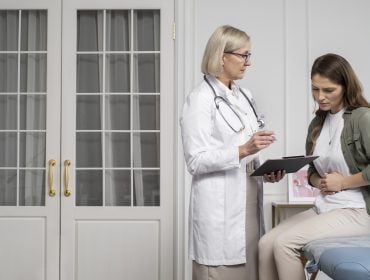Uncovering Surprising Ways to Contract Chlamydia Non-Sexually: A Professional Guide
You might think chlamydia only spreads through sex, but surprisingly, you can catch it in other ways. Getting tested during pregnancy is vital because babies can pick up the infection from their mothers at birth. Even without sexual activity, direct contact with certain fluids may transmit chlamydia.
Although rare, sharing personal items like towels or underwear could pose a risk if they’re tainted by infected discharge. Yet kissing doesn’t have evidence linking to transmission; oral encounters and contaminated surfaces do present risks worth considering for your safety and health awareness.
Oral Activities’ Role in Spreading Chlamydia
You might not think it, but oral activities can spread chlamydia. Yes, you read that right. If one partner has the infection in their throat and performs oral sex on another person, they can pass the bacteria to them.
It’s a path few consider when thinking about STIs. Even without sexual contact direct or indirect exchanges, think sharing towels, toys even touching infected spots may move this sneaky bug around.
Remember these facts: get tested often if active, or at your first prenatal check, and definitely steer clear of those germs by staying clean and using protection every time.
Kissing and Chlamydia Transmission Risk
You might think kissing is safe, but let’s clear this up: you can’t get chlamydia from a simple peck. However, being close to someone who has it does raise questions about other risks. If your partner carries the bacteria and isn’t aware of it, since symptoms often don’t show, it’s critical for both of you to test regularly.
For young people who are more active or have many partners, the risk goes up. Regular tests matter here too; particularly if under 25 or with new multiple partners where chances spike. Testing early matters since passing on chlamydia during childbirth could harm your baby, like causing eye issues or lung problems.
In short: avoiding all sexual activity is surefire prevention, but not always practical! Using condoms correctly every time shields against transmission most effectively alongside mutual faithfulness in tested monogamous relationships. So talk open and straight with doctors about testing if sexually active, if signs do pop up (think unusual discharge or pain), seek help promptly because yes, they got treatments that work!
Mythbusting Toilet Seat Contamination Concerns
You might worry about toilet seats and STIs like chlamydia, but here’s the truth: it’s very unlikely to catch one that way. Germs from someone with an infection don’t live long on surfaces. They need warmth and moisture from our bodies to survive.
For germs to move from a seat to you, they would have to reach your genital area or a wound – not something that happens easily unless there’s direct contact. Now, it’s worth noting how these infections do spread, through infected fluids during unprotected sex or skin touch for herpes, not just sitting down after someone else has used the bathroom. Itchiness or discharge can signal an STI so get checked if concerned; even partners without sexual history could be carriers due to oral encounters before their first time having intercourse.
Remember this next time you’re in a public restroom: sit without fear! Those bugs won’t jump off the seat onto you.
Indirect Contact Scenarios for Chlamydia Exposure
You might wonder if you can get chlamydia without direct sexual contact. Here’s the scoop: Chlamydia needs specific body tissue to latch on, like that found in your eyes or urinary tract. You won’t pick it up from public pools, chlorine and sheer water volume make sure of that.
And no stress at doctor visits; each check uses a clean tool for your safety. Even without signs, this germ could hide out for years inside you, biding its time. When you’re hit hard by something else, a nasty flu or maybe another serious illness, that’s when chlamydia might strike back with symptoms as your defenses dip.
Chlamydia, often seen as a sexually transmitted infection, can surprise you. You might get it through shared sex toys or even from touching your eyes after handling contaminated objects. Newborns may contract it during birth if the mother is infected.
Remember to stay alert and practice good hygiene; regular testing with STDCheck helps too. This guide sheds light on less known risks so you’re better armed against this stealthy bacteria. Keep clean, test often, and stay in charge of your health story!
Medically Reviewed by J. Frank Martin JR., MD on April 11, 2024
Secure and Confidential
STD testing services
The fastest results possbile - available in 1 to 2 days

Tagged
Categorized As
Author: STD Check Editorial Team
At STDCheck.com, we go to great lengths to ensure quality content. We’re using our own collection of data. It is not bought or made up for “click-bait” purposes. We don’t entice traffic with cheesy graphics or raunchy headlines. Our information is to promote STD testing, educate people, let go of social stigmas, and bring awareness. We also provide a completely confidential atmosphere through private testing. When we produce an article, it is fact-based. We check it with medical advisors that approve it. Our staff consists of doctors and other medical professionals who peer review the content we make available on STDCheck.com. From all over the world, we have sourced the best and the brightest content developers, including medical professionals, marketing engineers, data scientists, content specialists, and media relations.




